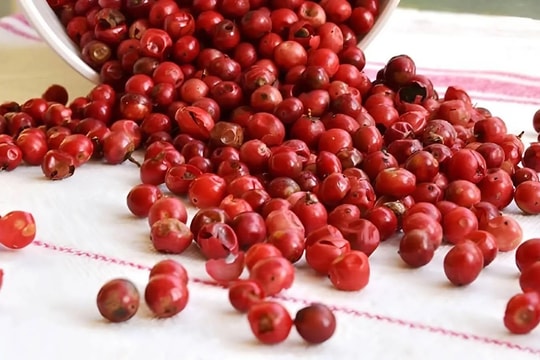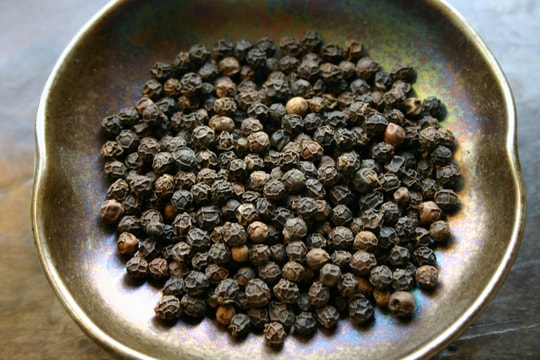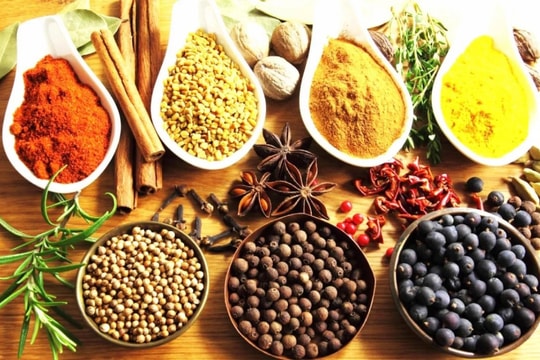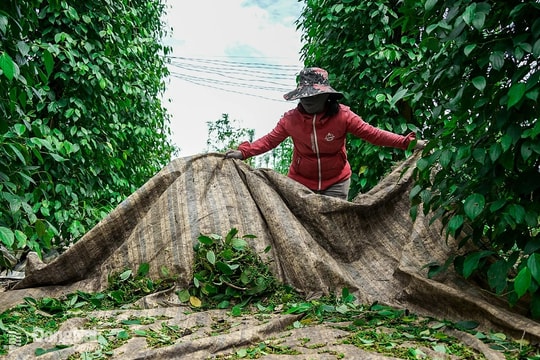Pepper price today August 12: Maintain high price
Domestic pepper prices today, August 12, 2025, remain high at 140,000 - 142,000 VND/kg. Harris Spice forecasts pepper prices will remain stable until supply and demand are clearer.
Domestic pepper prices
Pepper prices today in key growing areas remain high compared to yesterday. Accordingly, the domestic pepper price level is from 140,000 VND/kg to 142,000 VND/kg.
In the Central Highlands region, pepper price today in Dak Lak remained unchanged compared to yesterday, currently at 142,000 VND/kg.
Pepper price today in Gia Lai is unchanged compared to yesterday, currently at 140,000 VND/kg.
Pepper price today in Lam Dong (old Dak Nong) is unchanged compared to yesterday, currently at 142,000 VND/kg.
In the Southeast region, pepper price today in Ho Chi Minh City (formerly Ba Ria - Vung Tau) is currently at 140,000 VND/kg, unchanged from yesterday. Dong Nai is unchanged from yesterday at 140,000 VND/kg.
In addition, today's pepper price in Dong Nai (formerly Binh Phuoc) remained unchanged compared to yesterday, currently at 140,000 VND/kg.
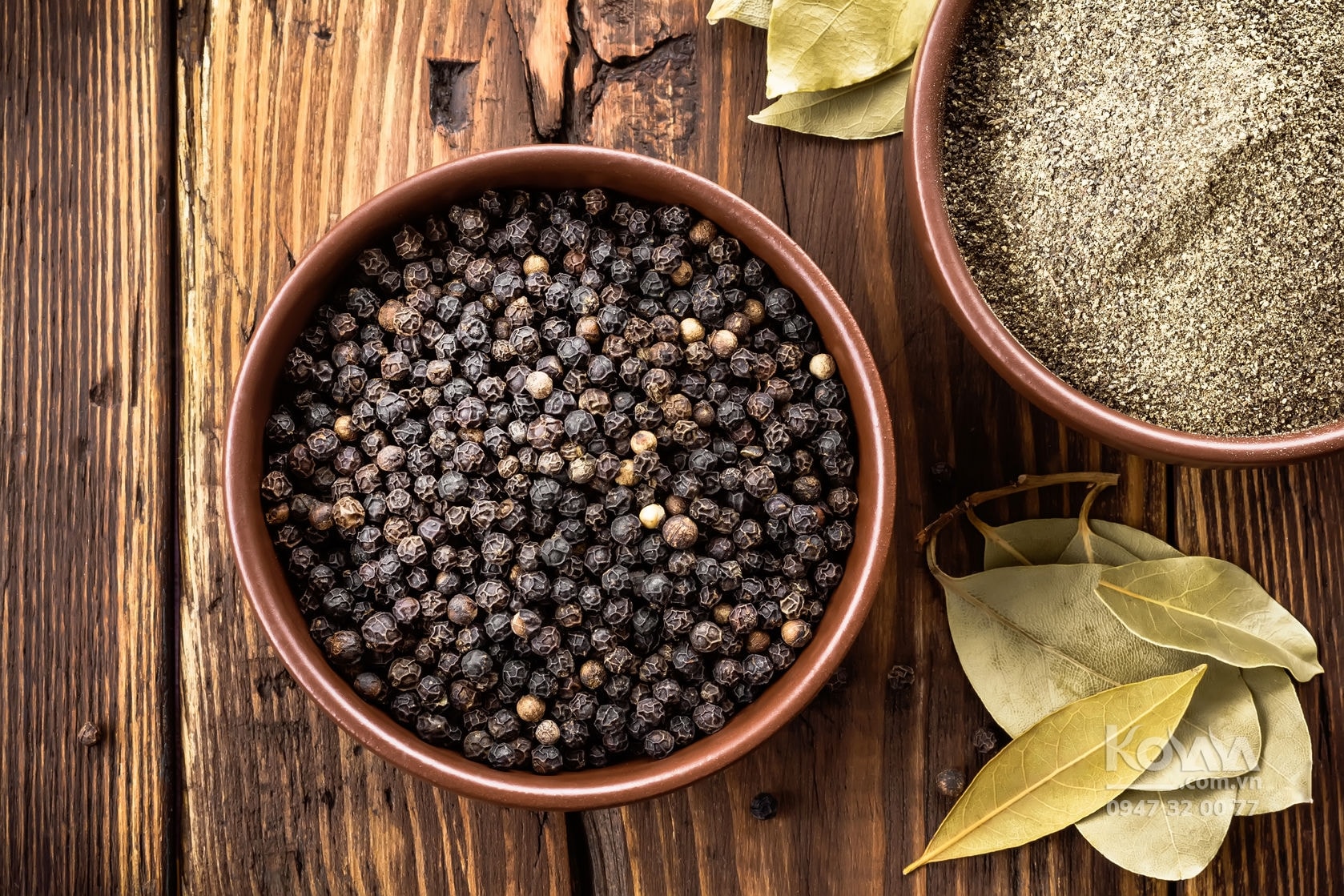
Domestic pepper prices have remained stable and high due to limited supply, while demand from major markets such as China, the US and Europe is recovering. Some farmers are actively holding onto their stocks in anticipation of higher prices, further reducing the amount of pepper entering the market and creating further pressure on prices in the short term.
Domestically, concerns about price fluctuations have caused both buyers and speculators to reduce transactions. Selling pressure has also decreased as supplies in production areas have almost dried up, helping pepper prices remain stable.
Harris Spice forecasts pepper prices to remain sideways until supply and demand become clearer. Supply from Indonesia may support the market in the short term, but Brazil’s new crop output will determine the medium-term trend.
On the demand side, the US import tariffs imposed on all major pepper producing countries will significantly impact the market. According to the latest report by Ptexim, after several adjustments, pepper prices have reached an important level of stability, opening up strategic opportunities for long-term buyers.
Pepper price today August 12 in the world market
In the world market, based on quotes from export enterprises and export prices in various countries, the International Pepper Association (IPC) updated the prices of all types of pepper traded in the international market on August 11 (local time) as follows:
Indonesia's Lampung black pepper price increased slightly compared to yesterday at USD 7,168/ton (up 0.29%). In addition, Muntok white pepper price increased slightly compared to yesterday at USD 10,019/ton (up 0.28%).
Brazilian ASTA black pepper prices remained unchanged from yesterday at $6,000/mt.
Malaysia’s ASTA black pepper price remained unchanged from yesterday at $9,250/ton. Meanwhile, the country’s ASTA white pepper price remained unchanged from yesterday at $12,500/ton.
Prices of all types of Vietnamese pepper remained unchanged compared to yesterday. Of which, the price of Vietnamese black pepper 500 gr/l reached 6,240 USD/ton; 550 gr/l reached 6,370 USD/ton.
Similarly, Vietnam's white pepper price remained unchanged from yesterday at USD 8,950/ton.
On August 6, US President Donald Trump decided to impose an additional 25% tax on imported goods from India, starting from August 27. Thus, the tax rate on goods from India to the US will increase to a total of 50%, among the highest that the US has ever imposed on a trading partner.
The move has Indian agricultural exporters worried about their ability to maintain their market share in the US. A Hyderabad-based trader said that already high logistics costs make it difficult for Indian goods to compete with South American countries near their markets. Now, the 50% tariff will almost halt exports.
Emmanuel Nambusseril, president of the All India Spice Export Forum, said India will lose its advantage in exporting black and white pepper as Vietnam, Sri Lanka and Indonesia enjoy lower tariffs. Other spices such as coriander and cumin seeds will also face stiff competition from Bulgaria, Ukraine and Syria.
Many US buyers have asked for price renegotiations or halted imports, forcing Indian exporters to look for new markets. The high tariffs are expected to sharply reduce domestic spice processing and push US buyers to cheaper import sources.

